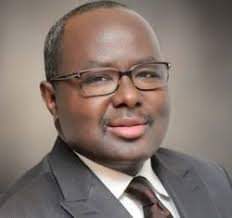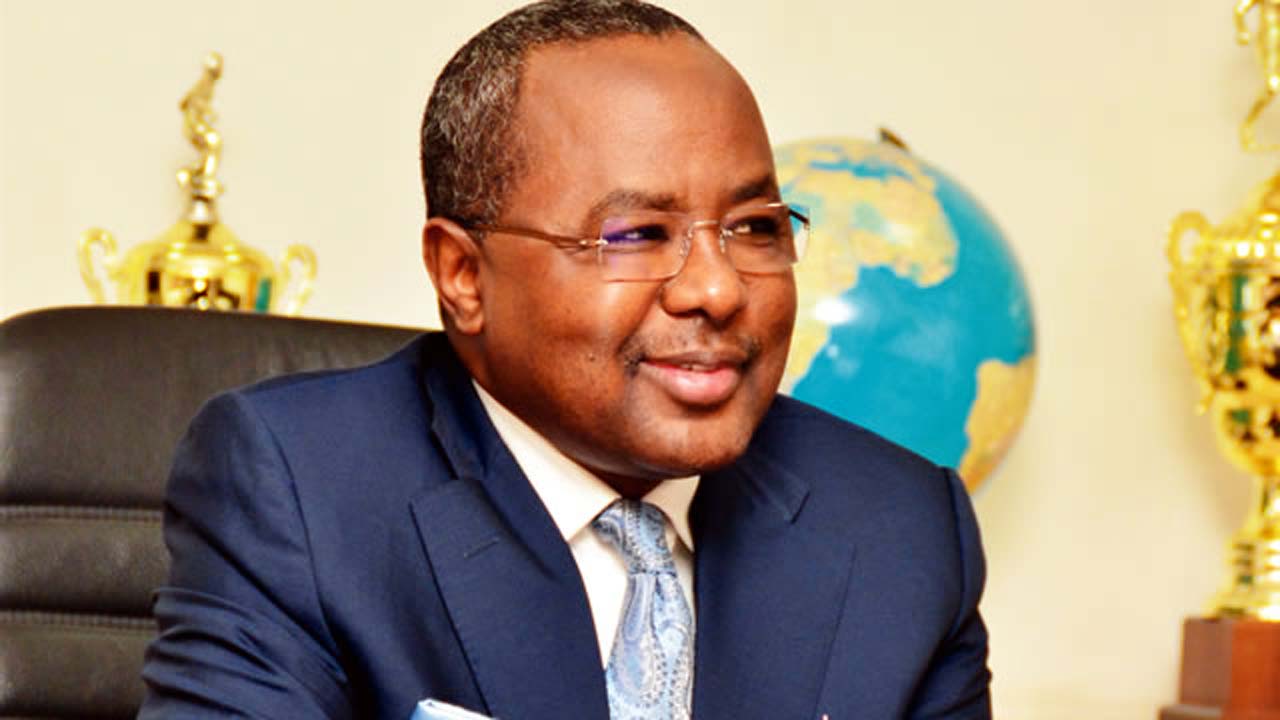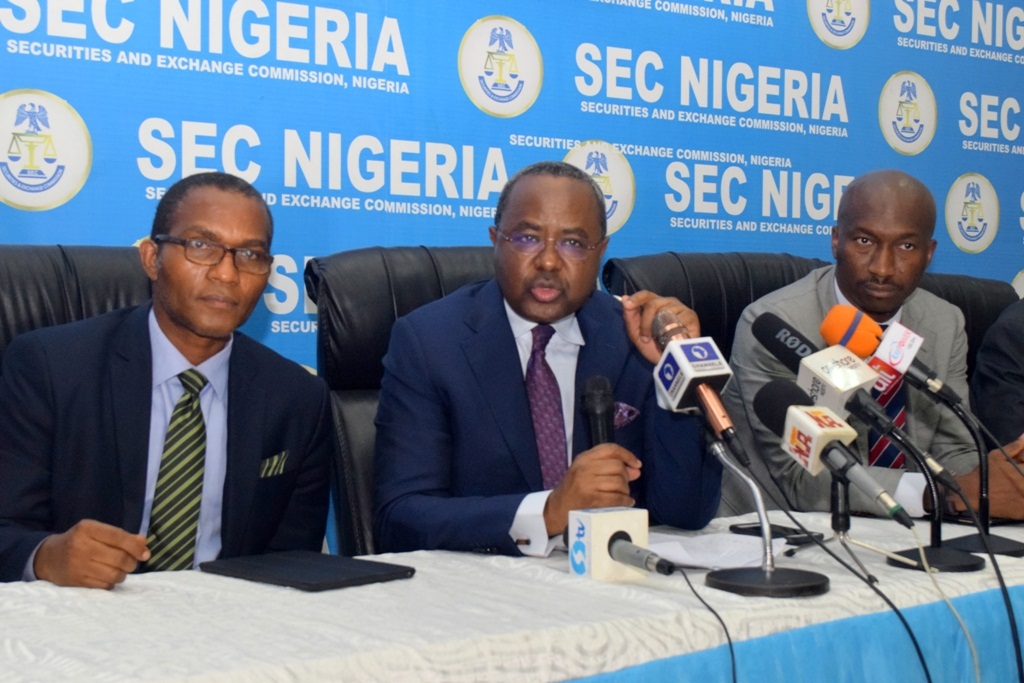Economy
SEC DG Insists ‘My Suspension by Adeosun Illegal’

By Dipo Olowookere
The suspended Director-General of Securities and Exchange Commission (SEC), Mr Mounir Gwarzo, has maintained that his removal from office in November 2017 by the Minister of Finance, Mrs Kemi Adeosun, did not follow due process.
Mr Gwarzo, while responding to a recent verdict of the House of Representatives Committee on Capital Market, which upheld his suspension, said the Minister erred in removing him from office without following the laid down rules.
The former capital market regulatory chief said if there was any arm of government that should be unhappy about the way and manner he was suspended, it should be the legislature “as the Minister of Finance acted against the provisions of ISA 2007 which is an Act of the National Assembly.”
In a statement personally signed by him, Mr Gwarzo said only President Muhammadu Buhari, who appointed him into office, has the power to remove him.
Below is his full letter.
Recent decisions by the Federal House of Representatives (The House) with respect to their public hearing and investigations on the cases against the Executive Secretary of the National Health Insurance Scheme (NHIS), some Directors of the National Emergency Management Agency (NEMA) and that against me with respect to my suspension as the Director General of the Securities and Exchange Commission (SEC) are puzzling.
The House had at its sitting on the 18th of April 2018 while adopting the report of its Committee on Capital Market and Institutions headed by Rep Tajudeen Ayo Yusuf said that I indeed has a case to answer and that the Minister of Finance Kemi Adeosun was right to have suspended me it therefore stated that “the suspension of the Director General of SEC, Mounir Gwarzo stands”.
I was suspended by the Minister of Finance Mrs. Kemi Adeosun on 29thNovember 2017. She based the suspension on petitions of corrupt practices and breaches of the public service rules levelled against me. However, at a public hearing before the House Committee on Capital Market and Institutions on January 30th, 2018, I noted that not only was due process not followed by the Minister prior to the suspension, she also lacked the authority to suspend me as this power lies solely on the President of the Federal Republic of Nigeria based on her recommendation and upon the confirmation from the senate as clearly captured in S5 (1) ISA 2007 which states that “the Director-General and the three full time Commissioners shall be appointed by the President upon the recommendation of the Minister and confirmation by the Senate.”
As S11 (1) of the Interpretation Act clearly states as follows, “Where an enactment confers a power to appoint a person either to an office or to exercise any functions, whether for a specified period or not, the power includes –
(a) power to appoint a person by name or to appoint the holder from time to time of a particular office;
(b) power to remove or suspend him.
The Minister in her letter based my suspension pursuant to the provisions of the Nigerian Public Service Rules (PSR) namely PSR 03405 and PSR 03406 however as I informed the public hearing, these provisions do not exist in Nigeria’s Public Service Rules and as we all know you can’t build something on nothing. What exist are PSR 030405 and PSR 030406.PSR 030405 merely provides for the responsibility of an interdicted officer or officer under suspension to make notification of his intention to leave his station or the country. While PSR 030406 requires a prima facie case to be established against an officer before he could be suspended. In my case,a prima facie case is yet to be established against me although I was invited by the Independent Corrupt Practices Commission (ICPC) after my suspension.Also, the Minister only set up an Administrative Panel after my suspension inviting me to appear on 8 January 2018 over the same subject matter.
Furthermore, according to PSR 160103, the PSR would only apply to the SEC DG or any staff of SEC in the absence of any statute, manual, rules, procedures and practices regulating the Securities and Exchange Commission and its staff. It is important at this point to state that my letter of appointment as the DG specifically referred to the ISA 2007 – an Act of the National Assembly as the law governing my conditions of service. Thus all actions relating to my appointment must be in compliance with the ISA as anything outside same would amount to a nullity.
However, the same House on the recommendation of its Committee on Emergency and Disaster Preparedness would at a sitting on the 20th of April 2018 direct the recall of the suspended Directors of NEMA because according to the Deputy Chairman of the Committee Hon. Ali Isa, investigations had shown that due process was not followed in their suspension and this is even after the Acting Chairman of the Economic and Financial Crimes Commission (EFCC) informed The House that NEMA had based the suspension of the Directors following a recommendation by EFCC who had carried out investigations against the Directors following a petition they received in December 2017and had found them wanting.
A member of the Committee Hon. Gabriel Onyewife also noted that in the case of NEMA there was no evidence of fair hearing and no final judgement had been passed against them as investigation was still in progress, this position was supported by the Speaker of the House, Hon. Yakubu Dogara who said that it was wrong to suspend someone without an opportunity for fair hearing.
In the case of the Executive Secretary NHIS who was suspended by the Minister of Health (but was reinstated 6 months later by the President of the Federal Republic of Nigeria) while investigations against him were still ongoing, and before the release of the report of the Public Hearing by the House of Representatives Committee on Health Services, the Chairman of the Committee Hon. Chike Okafor immediately moved a motion for his protection and immediate recall.
From the above it is obvious that the position of the House that my suspension as the DG, SEC was in order on the mere ground that I had a case to answer when it is clearly obvious that due process was not followed in my caseleaves a lot to be desired.
Recently, the Federal Government through the Office of the Secretary to the Government of the Federation, in the case of the purported suspension of the Director-General, National Women Development Centre, carried out by the centre’s Governing Board which the Federal Government termed as an illegal act and directed the DG to resume her duties immediately.
Part of the statement read as follows, “The Boards and Chief Executive Officers are all appointed by Mr. President, according to stated terms and conditions with clearly established rules and procedures for subjecting Chief Executive Officers to disciplinary measures including suspension from office. In this respect, this process has not been followed.
Government believes in due process, and will not tolerate any arbitrary action taken by any Board of any Federal Government Agency.”
Finally if there is any arm of Government that should be unhappy about the way and manner I was suspended it should be the Legislature as the Minister of Finance acted against the provisions of ISA 2007 which is an Act of the National Assembly.
Mounir Gwarzo
Abuja, Nigeria
Economy
Sachet Alcohol Ban: NECA Demands Respect for Due Process
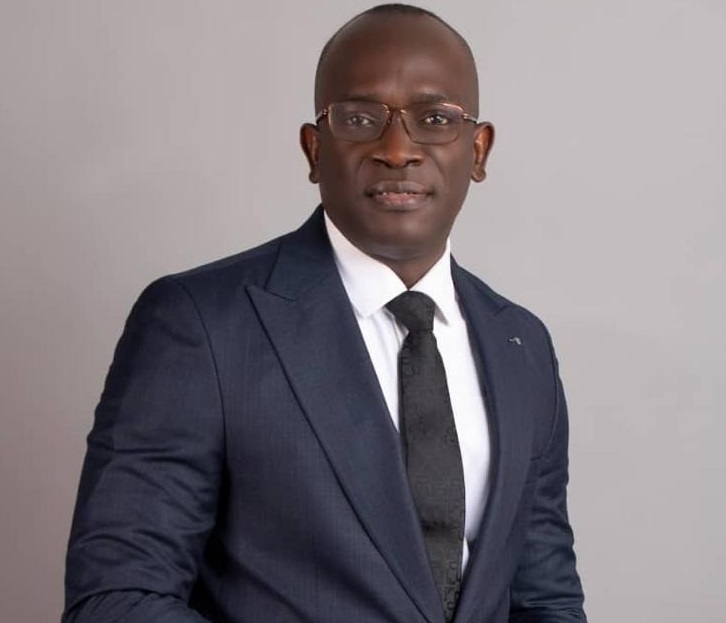
By Adedapo Adesanya
The Nigeria Employers’ Consultative Association (NECA) has expressed concern over the renewed enforcement of a ban on the production and sale of alcoholic beverages in sachets and small PET bottles by the National Agency for Food and Drug Administration and Control (NAFDAC).
The group’s director general, Mr Wale-Smatt Oyerinde, warned that the action of the agency could have adverse economic and governance consequences.
NECA is the organisation expressing worry of this issue after the Manufacturers Association of Nigeria (MAN) raised concerns about it earlier this week.
Mr Oyerinde said the enforcement contradicts a directive from the Office of the Secretary to the Government of the Federation dated December 15, 2025, which suspended the ban, as well as a March 14, 2024 resolution of the House of Representatives calling for restraint and broader stakeholder engagement.
The NECA chief said the continued enforcement is already disrupting legitimate businesses, unsettling ongoing investments, and putting thousands of jobs at risk, while weakening confidence in Nigeria’s regulatory environment.
According to Mr Oyerinde, regulation should be based on evidence, proportionality and the rule of law. He noted that the affected products were tested, registered and periodically revalidated under NAFDAC’s regulatory procedures, with alcohol content clearly labelled in line with internationally recognised Alcohol by Volume standards.
He added that underage drinking is primarily an enforcement issue at the retail level rather than a packaging issue, and called for stricter licensing, monitoring, and sanctions for erring retailers rather than a blanket ban on certain product formats.
NECA boss also warned that sachet and small-pack formats reflect affordability realities for many adult consumers, and that eliminating them could push demand into informal, unregulated markets, increasing public health risks and shrinking the formal economy.
He further expressed concern that enforcement efforts are focused on a regulated segment of the beverage industry while more dangerous illicit narcotics and abused pharmaceuticals continue to circulate widely among young people.
On the economic impact, NECA said the wines and spirits value chain supports significant direct and indirect employment across manufacturing, packaging, distribution, transportation, retail and agriculture.
It cautioned that sudden regulatory actions could threaten livelihoods, reduce government revenue and undermine investor confidence.
Addressing environmental concerns, NECA said plastic waste issues should be tackled through improved waste management, recycling systems and extended producer responsibility frameworks, rather than selective product bans.
Economy
NASD OTC Index Drops 0.27% as Market Cap Slides to N2.167trn
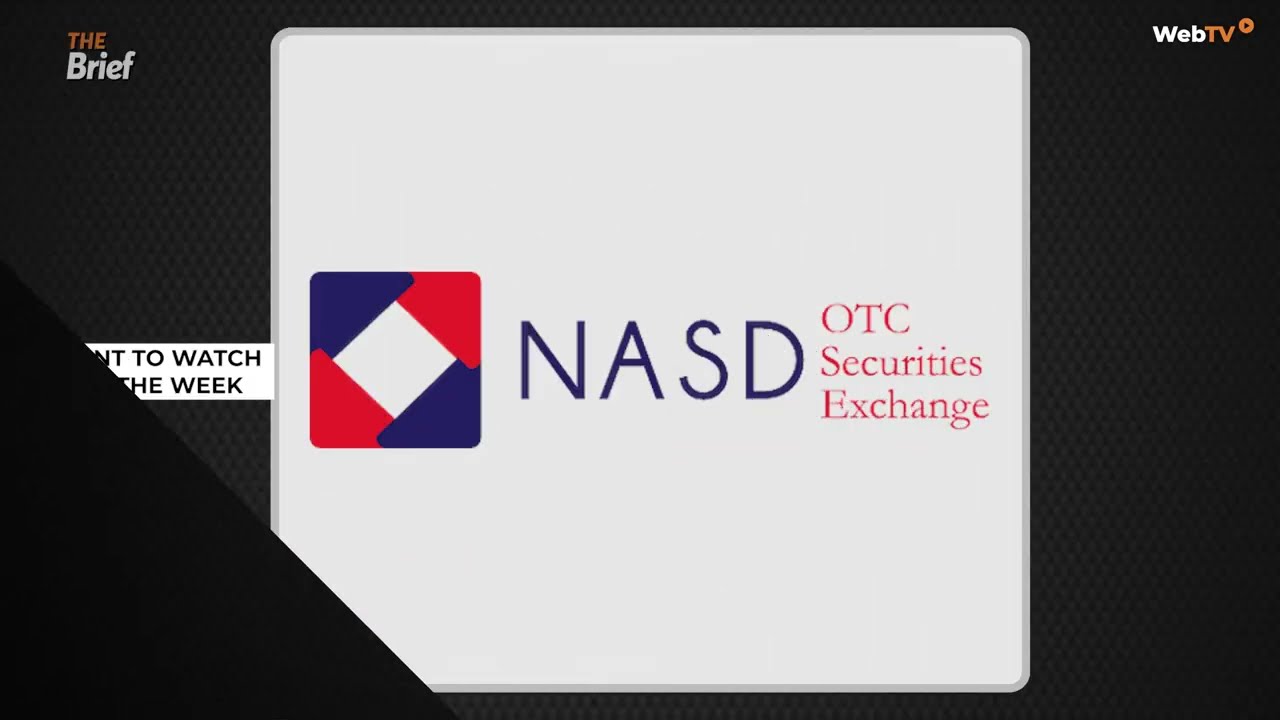
By Adedapo Adesanya
The NASD Over-the-Counter (OTC) Securities Exchange lost 0.27 per cent on Thursday, January 29, weakening the Unlisted Security Index (NSI) by 9.79 points to 3,622.77 points from the previous session’s 3,632.56 points, as the market capitalisation recorded a N5.85 billion loss to end at N2.167 trillion compared with Wednesday’s closing value of N2.173 trillion.
Three securities were responsible for the downfall of the alternative stock market, with leaders being Okitipupa Plc, which shrank by N15.70 to end at N218.90 per unit versus the previous day’s N234.60 per unit. Afriland Properties Plc declined by 50 Kobo to close at N14.00 per share compared with the N14.50 per share it finished at midweek, and Food Concepts Plc dropped 9 Kobo to sell at N2.63 per unit versus N2.72 per unit.
Business Post reports that there were two price gainers yesterday led by Nipco Plc, which added N17.48 to its value to settle at N259.48 per share versus N242.00 per share, and Central Securities Clearing System (CSCS) Plc appreciated by 35 Kobo to N40.50 per unit from N40.15 per unit.
During the trading session, the volume of securities went down by 57.3 per cent to 1.9 million units from 4.7 million units, the value of securities decreased by 74.4 per cent to N13.4 million from N52.4 million, and the number of deals slipped by 50 per cent to 16 deals from 32 deals.
When the market closed for the day, CSCS Plc was still the most active stock by value on a year-to-date basis with 15.3 million units traded for N622.9 million, trailed by FrieslandCampina Wamco Nigeria Plc with 1.6 million units exchanged for N108.4 million, and Geo-Fluids Plc with 8.9 million units worth N60.4 million.
CSCS Plc was also the most active stock by volume on a year-to-date basis with 15.3 million units valued at N622.9 million, followed by Mass Telecom Innovation Plc with 10.1 million units sold for N4.1 million, and Geo-Fluids Plc with 8.9 million units transacted for N60.4 million.
Economy
RT Briscoe, Others Lift Stock Exchange by 0.22%

By Dipo Olowookere
The gains recorded by RT Briscoe and 40 other equities lifted the Nigerian Exchange (NGX) Limited by 0.22 per cent on Thursday after a day with the bears.
Rebound of the stock exchange was triggered by renewed bargain-hunting activities by the market participants, with RT Briscoe gaining 10.00 per cent to sell for N7.15.
SCOA Nigeria appreciated by 9.91 per cent to N31.60, Deap Capital also jumped by 9.91 per cent to N10.43, Veritas Kapital appreciated by 9.85 per cent to N2.23, and Zichis chalked up 9.80 per cent to trade at N3.81.
Conversely, Haldane McCall depreciated by 9.84 per cent to finish at N3.94, Union Dicon shed 9.79 per cent to close at N8.75, University Press shrank by 8.00 per cent to N5.75, Legend Internet crashed by 7.56 per cent to N5.50, and Austin Laz lost 7.50 per cent to quote at N3.70.
Data indicated that the bourse ended the session with 41 price gainers and 27 price losers, implying a positive market breadth index and strong investor sentiment.
Business Post reports that the industrial goods index was flat yesterday, but this was offset by the others, with the banking space up by 0.68 per cent, the insurance segment rose by 0.64 per cent, the consumer goods counter expanded by 0.46 per cent, and the energy sector grew by 0.10 per cent.
Consequently, the All-Share Index (ASI) went up by 362.93 points to 165,527.31 points from 165,164.38 points and the market capitalisation gained N232 billion to finish at N105.969 trillion versus the previous day’s N105.737 trillion.
The most traded stock for the day was Cutix with 144.6 million units worth N464.9 million, Veritas Kapital traded 56.6 million units for N124.3 million, GTCO sold 26.0 million units valued at N2.6 billion, Tantalizers exchanged 26.0 million units worth N110.0 million, and Japaul transacted 25.9 million units valued at N67.2 million.
When Customs Street closed for business, the activity chart showed the trading was up by 10.94 per cent to 691.4 million shares from 623.2 million shares, the trading value was down by 6.67 per cent to N15.4 billion from N16.5 billion and the number of deals shrank by 8.32 per cent to 38,665 deals from 42,172 deals.
-

 Feature/OPED6 years ago
Feature/OPED6 years agoDavos was Different this year
-
Travel/Tourism9 years ago
Lagos Seals Western Lodge Hotel In Ikorodu
-

 Showbiz3 years ago
Showbiz3 years agoEstranged Lover Releases Videos of Empress Njamah Bathing
-

 Banking8 years ago
Banking8 years agoSort Codes of GTBank Branches in Nigeria
-

 Economy3 years ago
Economy3 years agoSubsidy Removal: CNG at N130 Per Litre Cheaper Than Petrol—IPMAN
-

 Banking3 years ago
Banking3 years agoSort Codes of UBA Branches in Nigeria
-

 Banking3 years ago
Banking3 years agoFirst Bank Announces Planned Downtime
-

 Sports3 years ago
Sports3 years agoHighest Paid Nigerian Footballer – How Much Do Nigerian Footballers Earn


